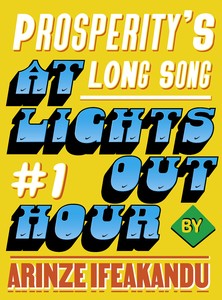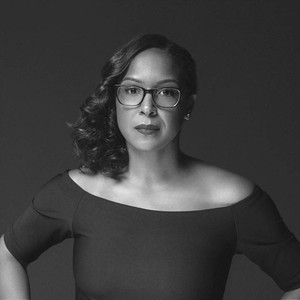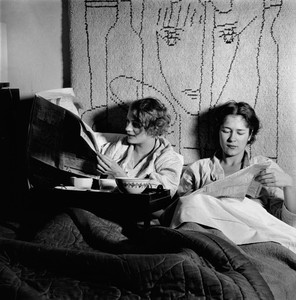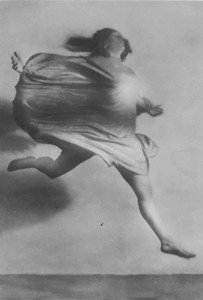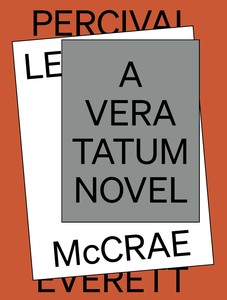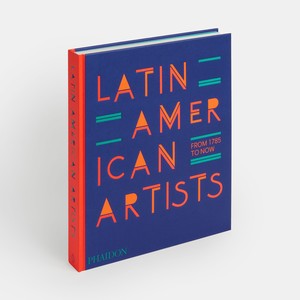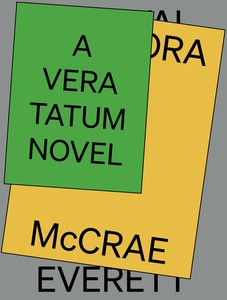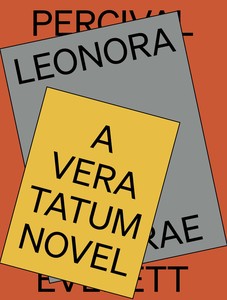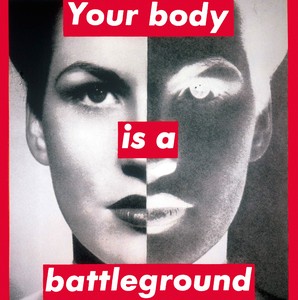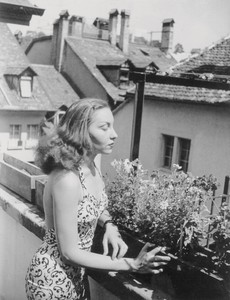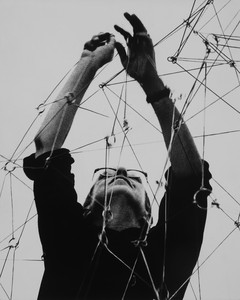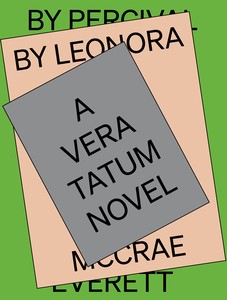You caught my eye. “Lo bueno y lo malo?” you asked.
I nodded.
You said, “I want you to tell all of it. But let me tell you how to start.”
RAPE
(Mami’s words in translation)
When I told you I planned to kill Julio twenty years ago, I meant it.
You’d come home from college for Thanksgiving break, thin and exhausted, spending days in bed. You hadn’t slept in weeks because of papers, presentations, tests, or eaten well in months, because the school only served American food. What kind of college was this? I asked your sisters, but they were just as confused.
I wasn’t ready, that November morning, for what you wrote out in cursive in a notebook and handed to me: rape. I was still half asleep. Cleyvis! At Skidmore? I asked. You shook your head, putting out the last cigarette.
Not me, Mami, you said. Julio raped Paloma.
I pushed the notebook away, to you. You pushed it back, to me. Suddenly I understood: You’d translated Paloma’s words, from English to Spanish, so I could read them. Your eyes were bloodshot. I tasted morning breath inside my mouth. I knew I might throw up.
You explained that you’d found Paloma’s school notebook the night before. I tried to ignore how your voice kept breaking as you spoke, how thick and hoarse it sounded. It wasn’t until you hiccupped that I looked up at you. You hiccupped a second time, like you had as a little kid.
In my hand, the notebook was as heavy as a million buckets of water, and my eyes stung from the smoke. When had you started smoking cigarettes?
Did you sleep at all, I think I asked. You shook your head.
There were so many books you’d brought from Skidmore. You were going to try to get ahead, you’d said on your first day back. College gave everybody enough work to drown.
I stood there in a cotton nightgown, trying to read the entire letter. Did someone at Skidmore rape you, I asked myself, then said it aloud to you. Not wanting to accept what you said.
Not me, you repeated, sounding older, tired. This happened to Paloma. Julio raped her. Not me.
Julio? My husband? I wanted to run away to before you came back home. Or maybe to last night, before Paloma asked if she could spend the night over at Choni’s. I should have insisted you should go along too.
You stood up and took the notebook, held it close to your chest. What are you going to do about it? you asked me.
I told you don’t worry, I’ll deal with it.
How? You insisted.
I’m going to kill him, I said.
Satisfied, you laid down on the bed, and when I went back in to check on you after my shower, you were sleeping soundly. Back in my own bedroom, as I got ready for work, I avoided looking at Julio, asleep on the bed. I thought instead of your father, of how different all would have turned out if he’d come with us to America.
You don’t have to make that face. I’m not blaming your father for what happened. I’m trying to explain to you that on that day, I thought life could have been different. I remembered Paloma at eight years old. Chubby. But tiny. Julio had only ever been brutal to me, I had thought.
I started getting ready for work. If I didn’t go to work, I didn’t get paid. Of all things, I remembered the house we lived in when I first married your dad, when he took me away from Mamá’s house. From the backyard, there was a view of the ocean crashing into rocks in the distance. The rocks were sharp, and always shiny and black in the sunlight.
I put on my coat. And then, on the way out the door, I doubled back, suddenly doubtful. I shook you awake. How could he have done this to Paloma, and nothing to you?
I never said he did nothing, you said. Then, blinking hard at me, you said—Did you really forget?
You turned your back on me and went back into your own deep sleep, or pretended to—I couldn’t tell the difference. I went downstairs. The icy ground crunched under my feet. I waited for the M11 bus. In front of me was a building eight stories high, pale brown. The road sloped downward to 125th Street, then up a sharp incline as steep as the path I traveled as a kid, barefoot, back and forth to the well. At the other end of the hill was the hospital I’d visited so many times, and across from it, Columbia University. My eyes swept back and forth on the hill, waiting for that bus. Five minutes went, then ten, then twenty, then a day, a lifetime, it all went, and I stood there, waiting for that damn bus.
By the time I came home from work that day you were gone with all your things. Went to stay at Choni’s, you wrote on a piece of paper torn out of that same notebook. Though I knew you had probably taken the notebook with you, I still got down on my knees, searching for it, wanting to read it for myself.
You told me it snowed a lot upstate that winter. When you got back to campus there were several feet of snow, and unlike the little bit that had fallen here in the city, crusted with dirt, I imagined that the snow at your college always stayed pristine. In my mind, I saw you sitting at the window seat in your dorm room, staring out at the hundreds of trees, each branch black inside clear ice, like those paintings I’d put up in the bathroom. You called them tacky.
Two weeks had gone by, and each day I felt you four hours away, waiting: would I go through with it? Choni came to get Paloma’s things. Choni, who didn’t so much as speak to me when she came upstairs carrying her six-month son, whose skinny left leg kept jerking out of his blanket. How did she manage to pack up all of Paloma’s things so quickly? I offered to help take some things down the stairs. I got it, she said. She left Paloma’s notebook behind, right above the dining room table. Where had it been?
Finally, at the end of the third week, you called. You were due back for the Christmas holiday any day. I asked about the weather and you told me about the snow. Then you stopped talking, abruptly. Your silence made the static connection loud, unbearable. Then I asked: If something terrible happened to your sister, wouldn’t she have told me, so I could stop it?
Why had she written it in a language I didn’t speak? When I’d confronted Julio, he asked me that. He also asked if I thought he would be capable of something like that. He said, Could I have chosen someone capable of that?
Mami, you said over the static, seven years ago, I told you what happened to me. Not as terrible as what he did to Paloma, just, you know, feeling my chest under my shirt, on a day when I stayed home sick from school. I ran away from him, Mami. I was scared.
You kept talking, even when I tried to interrupt you. Even when I begged you to stop talking. You reminded me that Julio made you promise not to tell me. At first, you’d agreed. But you told Choni the next day. Choni told me. And when I’d asked you, you told me the truth.
I don’t remember any of that, I said.
You started talking so fast. You reminded me that I had spoken to him, that he had managed to convince me you were a liar with a grudge, that Choni was putting you up to it. So I would kick him out and so she could come back in.
I searched and searched in my mind and I had no memory of any of that. I still don’t.
“You think we’re liars now? Again?” Your voice had a coldness to it. I imagined your real voice as something warm, still, inside that colder voice. “What about the pills you drank after? You remember trying to kill yourself?”
The pills, I remembered.
Then you said something garbled. I imagined the warm and the cold in your throat, fighting to come out at the same time. If he’s in your life, we won’t be? Unless you kick him out, we won’t come back? Something like that you said. You hung up the phone. It would be twenty years before I heard your voice again, with a baby in the background. My granddaughter, I thought. A brand new one of us.
FALSE START
Me, a spit of you, people used to say. But we don’t look alike anymore. The years have done such a number on your face. The bone structure we used to share has now been buried by fat and sadness, old injuries that never healed quite right. The plaster in your palm no longer curved. It was flat, in pieces. I took it from you, walked the short distance, threw it in the trash.
“I don’t think that’s how this starts,” I told you when I sat back down, the plate of food by now only bones sucked clean.
“Tell me again,” I said, “about that day, on the mountain of Los Guzmanes, when you went to get water out of a well.”
At first you resisted, saying only you had the right to say how this started. And I told you no, you lost the right to decide long ago.
THE HURRICANE
(Mami’s words in translation)
The two-mile walk to get water out of the well was the best part of my day. And the worst part of my day.
For a skinny ten-year-old, it was a hard walk up a steep incline. It reminded me how hungry I was, how tired. But I didn’t care. Not on those walks.
The bright sun charged my skin. Being outside spelled freedom I never had in Mamá’s house. The farms at the bottom of the mountain were all green. Even from a distance I knew who was who. Juanito hitting the asses of horses. Margarita with empty buckets heading to milk cows, her head odd shaped from the time one kicked her. Neither ever bothered to look up.
Back at home, I didn’t spend much time looking up either. It was head down to bathe and feed siblings; head down to peel vegetables and fruit, cut off excess fat, prepare, serve. Head down to do dishes, wash clothes, listen to Mamá’s commands. It was a disrespect to make direct eye contact, to do anything except listen and follow.
But on that walk to the well? All sky. My favorite part? How quiet it was. On those walks, I didn’t have to yell at the small army of kids I was in charge of to stop fighting each other, or, worse, to soothe with kisses over another bruise.
The way down? Big difference.
One day in particular, as I strained under the weight of a bucket full of water on top of my head, and two buckets in each hand, I was startled by thunder. Looked up. The bucket on top of my head slipped.
I had to go back to the well.
On the way home that second time, it got dark. As I passed by the neighbor’s house again, the woman called me to the porch. You can’t keep going, she said. It might be a hurricane.
We both looked down the road, at the falling thick dark.
I said no, had to get home, but she insisted. Someone will come to get you, she said.
A hurricane never came that night. But the downpour was so loud, I had a hard time falling asleep.
Despite the dread in my belly, I loved the walk back. I couldn’t help but notice how many rainbows quivered in puddles, how much of the sky was reflected on those tiny mirrors.
When I got home, Mamá didn’t waste time asking what had happened, or where I’d spent the night, didn’t attempt to explain why, with a house full of family, no one had come looking for me. Weren’t they worried? I asked. The response: she beat me to the ground. It started with a chancletazo down my back. I crouched to shield my face and waited for Mamá to wear herself out.
When it was all over, I went to the backyard and carried on. It was the first time I told myself that as soon as I was old enough, I’d get the hell out of that house. I’d make my own house, my own family. I quieted the rage. There was breakfast to be made, a bunch of mocosos who needed their faces washed, and a walk back up the mountain for water.
BEARABLE PLACE
Your face says: if suffering is noble, then I am queen. That royal pride was something I’d seen on you before, on a day when your nose had been broken, lip split. On my birthday, as you guided me on where you wanted this story to start, I wanted you to see clearly how your early life led to that man you brought into our house.
“Aren’t you mad at Abuelita?” I asked.
“Imagínate,” you said, “es una hija de puta, pero es mi hija de puta.”
“Abuelita is not just your asshole,” Choni said, “she’s everybody’s asshole.”
Choni and Paloma had arrived during your recounting. Both of them big women, like you. They’d already served themselves food, joined us at the dining room table. Choni tilted her head while she drank her beer and rested her eyes on the ceiling, as another bit of plaster fell. This time you didn’t reach for it, but I did: not an orchid but the trumpet shape of a calla lily.
On the wall beside the table, the crooked painting of Jesus surrounded by the apostles, a traitor among them. Since we moved to Harlem, every time someone fixed that crooked painting, within moments it slid back sideways. Choni and Paloma made peace with you long before I did.
You laughed. “No faltes respeto.”
“Thought this was a peace thing,” Paloma said. “What’s with the trip down depression lane?”
I explained what I wanted to do. I asked their permission to write about our lives. They both got animated, agreed immediately. Was I the only one who remembered the worst? Meanwhile, they wanted to talk about the memoir. What did I mean, essays instead of chapters? Separating the entire thing by each of them? Would anybody care to read what we’d been through?
“It’s a memoir about our family, so the family is the main through line. People will care as long as the writing is good.”
They looked at their phones, bored. Then Paloma looked up. Would I use real names?
“I want you to use my own name,” Paloma said.
Paloma is not her real name.
Choni was thoughtful, then turned to you. “I want my name to be Maria La Rompe Olas.” Mary the Wave Breaker. I told her I’d think about it. But for the rest of my birthday dinner, we indulged her:
“Maria La Rompe Olas, please bring me some water.”
“Maria La Rompe Olas, show Mami that video of the old woman dancing reggaetón.”
“Esa vieja si es sinvergüenza,” you said, while you stood and mimicked the old woman’s gyrations. Paloma took out her phone to record you while Choni held the video of the old woman within the frame—the bonus video to go along with any full-price purchase of our book.
I remembered then. This is how. How we made our world a bearable place.
OUR SOB
I learned to be tough by studying your face. The last time Julio had beaten you seriously (meaning loud enough, bad enough, someone had to call the cops; hard enough, bad enough, you had to go to a hospital), I came out of the room I shared with Paloma, then twelve, to find myself between your broken face and the man who broke it.
You had just walked out of the bathroom. Julio stood behind me. You faced him and looked through me as if I weren’t there. Your left eye had started to swell, and blood streamed from the cuts in your mouth and your cheeks, a huge tear in your eyelid. The bridge of your nose curved in an unusual way.
“Are you happy now?” you asked him.
He pushed me out of the way, pushed you out of the way, and left. Maybe you liked that he was big, and the darkest shade of Dominican Black; that he wore all those gold rings shaped like lions, that he yelled and hit and never flushed the toilet, no matter what he’d done in there.
You looked at me as blood streamed down your face, spotting the wooden parquet floor. Your stance was defiant. “Why are you crying?” you said.
I went back into my bedroom, put my nose in Island of the Blue Dolphins, and pretended nothing was out of the ordinary, even as the police later entered my bedroom without knocking, a white boy asking who else had been hurt.
“I’m not hurt.” I tried to remove my accent, to make sure he understood that I wasn’t really of this place. He was young, maybe nineteen, and under different circumstances I would have rushed to school the next day to tell my best friends how much he looked like Zack Morris in Saved by the Bell. But I wouldn’t be talking about this.
He took a look at the top bunk, where Paloma pretended sleep. His eyes swept the mess of our bedroom. There were clothes strewn everywhere, a mountain behind the closet door that was always off the hinges, no matter how many times the super repaired it. The mess had a function: in the closet wall were huge holes Julio had made so that he could peep into our bedroom. Our drawers remained empty in the service of concealment.
The officer gave me a kind, pity-filled look, then quietly closed the door. Julio knew better than to come back. After a while, a second cop, who spoke Spanish, asked if you were going to press charges. Why did you say no? He told you he was calling an ambulance but you said, “No, ninguna ambulancia, yo me voy en taxi.”
Just like that, the cops left.
Nobody went with you to the emergency room. I read my book, knowing it was my way out. Karana, the young protagonist of Island of the Blue Dolphins, had been stranded on an island and managed to survive. I walked out of the bedroom, got water and a mop to clean your blood. And then, shaking my head, I poured the water in the toilet, put the mop away, still dry.
I’m getting the hell out of this house, out of this family, away from you, I thought. The puddles of blood on the floor reflected light. And I left it there. Left it for you to clean.
HERE COMES THE INFANTRY!
A few days later, your brothers and in-laws, serious men, came to talk to Julio. You’d gone back to work, cleaning homes, a job that kept you away from home at least fourteen hours a day. We children were dismissed to bedrooms. This was adult-talk time. I kept my door open, just enough. The men stood while Julio sat down on the couch, legs spread wide.
“Things got out of hand,” he said, “because Fragancia doesn’t know respect. She doesn’t know when to shut up.”
The men of our family stood shoulder to shoulder, fidgeting, shuffling feet, looking around the room.
“This behavior won’t be tolerated again,” one of them said.
“She’s free to leave me,” Julio said, then stood up.
Time stopped.
Each of the men took a wider stance. They unfurled their folded arms and seemed to multiply. The energy in the room changed, violence at the ready. Finally, men strong enough, big enough, to punch him back.
“I have no intention of ever putting a hand on her again,” he said. Through the slit of my door I saw each of the men of your family shake hands with him, a kind of truce.
I told myself, This is my family. I shouldn’t have been surprised that Choni left shortly after, that she ended up living with friends because no one from our family opened a door. I shouldn’t have been surprised that Julio kicked out his oldest daughter, too, as soon as she started talking about the strange virginity bare-hand tests he performed on her. I shouldn’t have been surprised by that useless gesture of shaking hands. But I was. As the men left our apartment, one of them saw my eye through the slit of that door and gave me a nod, as if to say, Everything will be good, all the horrors are now behind you.
But the horrors didn’t stop. The horrors only got worse.
What did stop was us going to Abuelita’s house on Sundays, just a half-mile away. They stopped coming here, no matter the injury, no matter how much of your fucking blood ended up on the floor. On rare occasions or holidays, when we did go to visit family, you told us that whatever happened in our house was our business. I agreed. Fuck them.
Because “our business” may have been embarrassing, shameful, and pretty terrible, but it was ours.
JUST US, NOW
With a wilting plaster flower on my palm, I stare at you. You stare at Paloma. Paloma stares at Choni. Choni stands, nodding hard. They leave silently, without kissing either one of us goodbye, without finishing their meals.
“Should we stop?” you ask. At my silence, you push forward. Just us, now. Trying to start, push through, finish.
FLIGHT I
(Mami’s words in translation)
I left Mamá’s house months before I turned nineteen. Your father was so respected. He was twenty years older, sure, but was handsome, had been relentless in his pursuit. I kept wondering why he picked me. I was grateful. I was ready for my own family.
The first house we lived in was in Imbert de Saballo, on the tippy toe of a hill overlooking the ocean. Do you remember it? Of course you don’t. It was a small, one-room wood house, with a zinc roof and mango trees lining the backyard. The house had electricity—no matter that power outages meant there wasn’t electricity that much of the time—and running water. Under this new sky, a one-room house became my palace, with a husband who provided, who worked hard, never mind the wandering eye.
Mamá always said each person fulfills her destiny. She thought mine was to serve, sometimes suffer. And at first I thought so too. When I first gave birth, the baby was stillborn. I thought it was punishment for leaving my responsibilities, a reminder of my purpose on earth. But quickly after, I was pregnant again, with Choni. Less than two years later, Lindo. Two years after that, you. Two years later, Paloma. Only after I had you four did I know it wasn’t true: I wasn’t put on earth to serve or to suffer. It was to survive. No matter what. At one point you were so small I held your entire body with both my hands. One palm cupping the back of your head, the other your diapered butt. I used to stare at each of your faces and the hours fell away. Each perfect face offered a feeling like a prayer. You were all mine.
FLIGHT II
You tried to convince me not to go away to college, Mami. Abuelita had filled up your head: the only reason young, single women go away from home before marriage is to be a bunch of sucias, putas. But I convinced you: if I wanted to be a puta, I didn’t need college for that. I could have done it while you were gone fourteen hours a day, seven days a week. My girlfriends got pregnant in high school. Choni got pregnant at thirteen. I’d been clear with you and with myself: I’d stay away from men—I wanted a life as far removed from yours as possible. I said it to you often. You agreed.
I spent the summer before my freshman year at Skidmore, on campus. Those four weeks in July and August were meant to bridge a gap for those of us who’d gotten in through an opportunity program—mostly immigrants or children of immigrants. The college administration knew that despite our grades and our egos, we hadn’t been taught how to study in our public schools. We hadn’t been taught to thrive in any environment.
“What do you mean, you don’t know how to study?” you asked. I’d been a straight A student in high school.
I tried to explain but it was too hard, so I told you instead I’d be OK. I’d learned to be tough, to be focused and push through whatever came, by studying your face. But no one had prepared me for what it meant to be eighteen, living in a dorm, with six hours of school a day. I called you often that first week, told you about the quick friendships I made with the three other girls in my suite. Of course you warned me about these friendships, said be careful of girls who want to move too fast, push me to do things I wasn’t ready to do.
“Whatever group you’re in, make sure you’re the worst,” you said. You were right. I still live by that sentiment to this day, making sure I’m the one who sets my boundaries, breaks them when I choose.
That first night in the dorm, we were supposed to play icebreaker games, but someone brought out cards and we began to play spades. There was joke-making and flirting and peace. The campus was quiet. Whatever summer programs took place had ended by then, and for days the whole place was ours.
Saratoga Springs is a lush green town, quaint and tiny compared to New York City. There my world expanded, took on sparkle. I only had to curve my neck back a bit to see all sky.
“Mami,” I said to you once, over the phone, “this place is like living in el campo, on that mountain where you grew up.”
BROKEN LEGACIES
Abuelita became a mother when she was twelve years old. Abuelita became a grandmother when she was thirty-two years old. Mami became a mother when she was twenty years old. Mami became a grandmother when she was thirty-four years old. My sister Choni became a mother when she was thirteen years old. Choni became a grandmother when she was thirty-nine years old. Paloma became a mother when she was nineteen years old. Paloma became a grandmother when she was thirty-nine years old. I became a mother when I was thirty-five. I’m the only woman in generations of my family who wasn’t a grandmother at forty.
COMPASS
When I showed you pictures of your grandchildren, you stared at the phone for a long time. Maybe next time you come, bring them, you said. I shrugged. Outside, darkness fell. I took a deep breath, maybe so sated by the meal it seemed unnecessary to say the things I’d rehearsed saying. Instead I write them here, and wonder if I’ll ever be courageous enough to translate myself to you.
Because this motherhood thing is so complicated. As much as you threatened to leave, you never did. I’ve thought about leaving mine, too. How I’d rather write books and travel the world. But just like you, I have stayed.
I quieted my tongue just as I was prepared to tell you the main reason I’d come back into your life—to tell you I didn’t forgive you. That I don’t think I ever will, especially now that I have a daughter, a brand new one of us. But looking at how changed you are, how sad you are, I let it go. Instead I stare at the crooked painting on the wall, and glance up at the now darker patterns in the ceiling from the missing plaster. It really does look like flowers up there, ready to bloom. The one in my hand, that lily, I hold it gently, then extend it to you, a gift. I tell you I gotta go. I tell you, Yes, I’ll bring them to meet you the next time. I tell myself, Maybe each time I see you, I’ll get closer to figuring out what it is I need to say, what I must hold back.
The next time I come, you’ll tell me that when I closed the door you went into our old bedroom, rummaged through old boxes until you found that old notebook. You will tell me that you hold it often, outlining that word with the tip of your index, the letter Paloma wrote on the following page, then the page after that, where I’d translated it for you. You will tell me that during all those years that have passed between us, the absence that remains most notable to you is the absence between the words, the white space a universe that punches, pulses, pulls.
